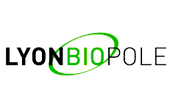Pipeline

Medical need
2.1 million new cases of lung cancer were diagnosed worldwide in 2018, and this disease was responsible for and 1.8 million deaths (source IARC). Lung cancer is therefore the most frequently diagnosed cancer and the leading cause of cancer mortality.
About 60% of patients are diagnosed with locally advanced (stage IIIb) or metastatic (stage IV) cancer; prognosis is poor (median survival 8-13 months). (source medscape)
Almost 80% of advanced-stage lung cancer patients of Caucasian origin are not (yet) eligible for targeted therapies (source JCI Insight) and are therefore treated with platinum-based chemotherapies (with or without bevacizumab). However, after first-line treatment, median time to progression is just 2-3 months. Patients’ conditions deteriorate rapidly, and median survival is less than one year from diagnosis.
Innovative Drug Candidate
PDC*lung01 is our leading product for non-small-cell lung cancer (NSCLC).
PDC*lung01 consists of PDC*line loaded with HLA-A*02:01-restricted peptides derived from 6 antigens matching with shared NSCLC tumor antigens. PDC*lung is primarily intended to treat HLA-A*02:01 advanced-stage NSCLC patients who are candidates for anti-PD-1 in first-line settings. The drug product has an off-the-shelf formulation (frozen solution in a cryopreservative reagent) and is provided in vials.
Primary results of phase I/II presented at ESMO-IO 2024 demonstrate that PDC*lung01 in combination with anti-PD1 has the potential to provide meaningful clinical activity compared to anti-PD1 alone in stage IV NSCLC, with a favorable safety profile:
- 15% increase in ORR of designed per protocol population (55% vs 39% in Keynote-042).
- 36% relative improvement in median PFS for design per protocol population (a 2.4 month increase versus pembrolizumab alone in Keynote-042).
- Other clinical endpoints are encouraging: DCR of 76%, CBR of 62%, and favorable trend on OS compared to Keynote-042 (not yet mature).
- Mild safety profile (typical of cancer vaccines): mostly Grade 1-2 Treatment-related AEs, and only 2% of TRAEs leading to discontinuation (vs 9.1% for Pembrolizumab alone in KEYNOTE-042)
- Significant antigen-specific CD8+ T-cell response: detected in 56% of patients, with remarkable expansions up to 2.3% of total CD8+T-cells
- Significant correlation between the amplitude of antigen-specific CD8+ T-cell response and the PFS.














